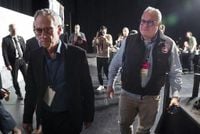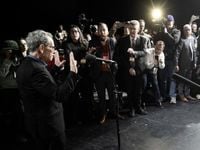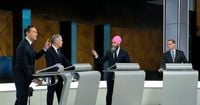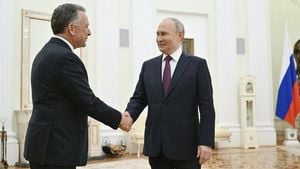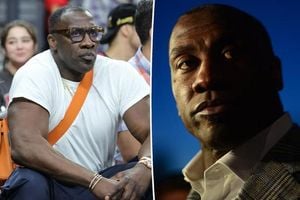OTTAWA — Tensions flared at the Leaders' Debates Commission as a planned question-and-answer session between journalists and party leaders was abruptly canceled following heated exchanges involving the right-wing media group Rebel News. The commission's executive director, Michel Cormier, announced the decision after Thursday's English-language debate, stating that the environment was not conducive for such an interaction.
"I'm sorry to announce there will be no scrum tonight with the leaders, because we don't feel that we can actually guarantee a proper environment for this activity," Cormier told reporters immediately after the debate. He declined to elaborate on the reasoning behind the cancellation.
The decision comes on the heels of a contentious atmosphere during the media availabilities after Wednesday's French-language debate, where Rebel News, along with other right-wing outlets, dominated the questioning. Rebel News had previously posted on its website that it had exerted legal pressure on the commission to gain greater access to the debates, resulting in five reporters from the outlet being allowed to pose questions, compared to just one from more traditional media outlets like The Canadian Press.
Adding to the controversy, Cormier admitted in an interview with CBC News Network's Power & Politics that he was unaware that Rebel News had registered as an official third party for the federal election when the commission granted it more opportunities to question leaders. This oversight has raised concerns about the commission's decision-making process.
Rebel News has a history of legal battles with the commission, having won court injunctions in 2019 and 2021 that allowed it entry into the debates. However, a Federal Court judge upheld a decision last September denying the outlet journalism tax credits, stating it does not produce sufficient original news content.
On the same day, the Green Party was disinvited from the debates, a move that has drawn criticism. Cormier explained that the party had misled the commission about its intent to run candidates in most ridings, leading to its exclusion.
The commission's handling of media access has not only been criticized by the Green Party but also by various journalism organizations. The Canadian Association of Journalists and a similar Quebec federation expressed their concerns, noting they were not consulted on the media access rules this election cycle.
During the media scrum after the French debate, NDP Leader Jagmeet Singh refused to answer questions from Rebel News, labeling the organization as a source of disinformation. This refusal highlights the growing divide between traditional media representatives and those from independent outlets.
As the situation escalated, the commission found itself in a precarious position, trying to balance free speech with the integrity of the debate process. Cormier noted, "There's only so much we can do to control free speech," acknowledging the challenges posed by Rebel News's presence.
Despite the cancellation of the post-debate scrums, Singh held a separate press conference in a hotel in Montreal, where he addressed the media without the interference of Rebel News. Meanwhile, Liberal Leader Mark Carney reiterated his support for the Leaders' Debates Commission, emphasizing the importance of having an independent body to manage the debate rules.
In a dramatic twist, the cancellation of the media scrum sparked outrage online. Rebel News CEO Ezra Levant criticized the traditional media's response, stating, "The Media Party would rather burn the whole place down rather than let one of us peasants ask an unscripted question." This comment encapsulated the frustrations felt by some independent media outlets as they navigate the complex landscape of Canadian journalism.
Levant's remarks were echoed by supporters who believe that independent media is essential for a diverse marketplace of ideas. Observers noted that the traditional media's reaction to Rebel News's presence at the debates reflects a broader struggle over the control of narrative and access to political leaders.
The commission's decisions have been characterized by a series of last-minute changes, including the rescheduling of the French debate to accommodate a Montreal Canadiens game and the disinvitation of the Green Party. These actions have raised questions about the commission's ability to maintain consistency and transparency in its operations.
Cormier stated that Wednesday's debate was "very successful," despite the controversies surrounding it. He assured that the commission would review the events and make recommendations to address the issues raised during this election cycle.
As the election campaign progresses, the dynamics between traditional media, independent outlets, and political leaders will likely continue to evolve. This ongoing tension could shape the future of political discourse in Canada, raising critical questions about media access, accountability, and the role of independent journalism in a democratic society.
The implications of these developments extend beyond the immediate election cycle, as they may redefine the relationship between media and politics in Canada. As voters prepare to head to the polls, the debates and discussions that unfold in the coming weeks will be pivotal in shaping public perception and engagement.
